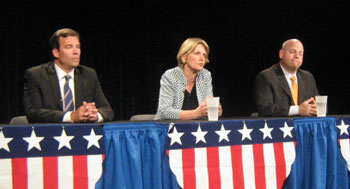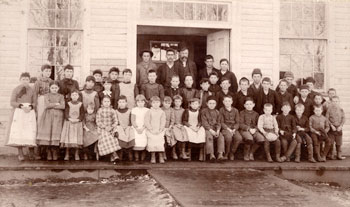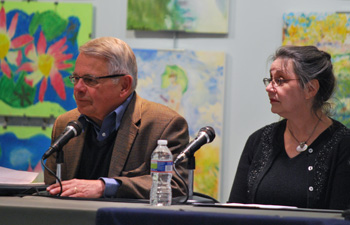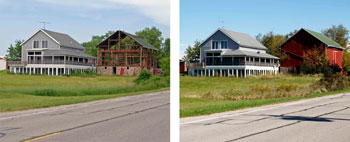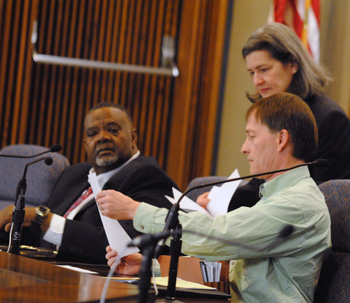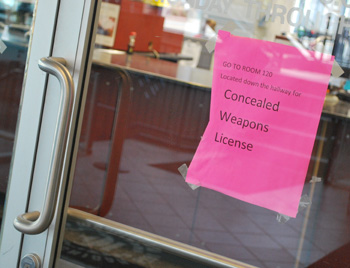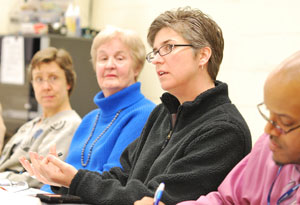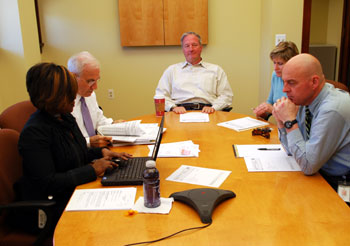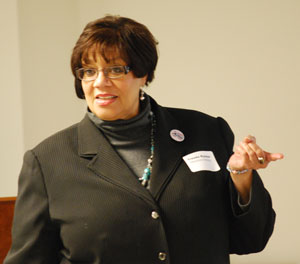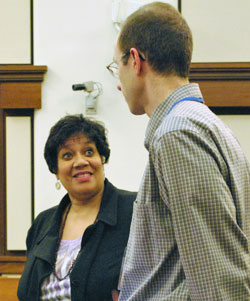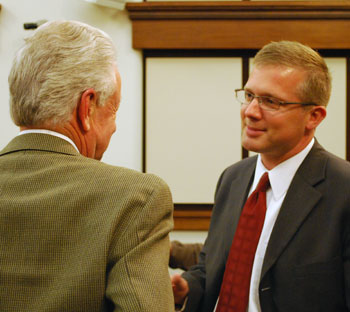Circuit Court Race: Conlin, Woodyard, Liem
On July 7, 2014, three candidates vying to fill a vacancy on Washtenaw’s 22nd circuit court participated in a League of Women Voters forum.
Pat Conlin, Veronique Liem and Michael Woodyard will compete in the nonpartisan Aug. 5 primary, which will advance the top two candidates to the Nov. 4 general election. The winner of that contest will fill the open seat left by judge Donald Shelton, who turned 70 in June. According to Michigan state law, only a person under the age of 70 can be appointed or run for the position of judge.
The circuit court tries felonies and criminal matters, family law, and civil disputes where claims are greater than $25,000. However, the docket for this particular seat on the circuit court is heavily weighted toward family cases.
Conlin and Liem are local attorneys, while Woodyard works in the Wayne County prosecutor’s office. At the July 7 forum, the candidates fielded questions covered topics including: family, the visibility of the court and general judicial philosophy.
A second seat on the court is also up for election, as judge David Swartz is at the end of a six-year term. He is running uncontested to retain his 22nd circuit court incumbent seat.
On its Vote411.org website, the LWV has posted candidates’ written responses to questions: [22nd circuit court candidate responses]
At the July 7 LWV forum, the candidates made opening statements, answered six questions and then made closing statements. The forum was moderated by Miriam Eve Borenstein, with questions predetermined by the league after asking for public submissions.
Candidates’ remarks are summarized below. To view the recorded video from the 22nd circuit court LWV forum, use Community Television Network’s video on demand. [Full Story]




